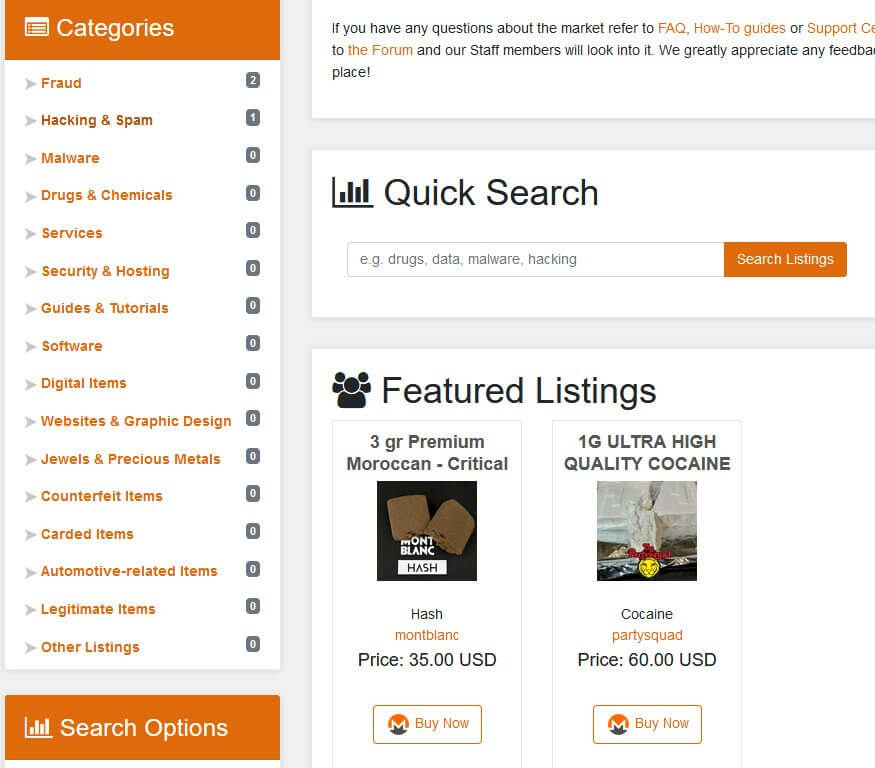Venturing into the Underworld: A Deep Investigation into Dark Web Marketplaces
A dark web, frequently shrouded in mystery and curiosity, has become a central topic for debates surrounding online anonymity, confidentiality, and the murky dealings that occur beyond the reach of conventional internet oversight. Inside this clandestine realm lies a network of markets that operate under the radar, enabling the exchange of goods and products that often thrive in a legal gray area or are outright illegal. Comprehending these dark web markets requires revealing the strata of concealment that envelop them, revealing the motivations of their users, the operations of their processes, and the ramifications for society at large.
As more individuals turn to the hidden internet for different reasons, from pursuing confidentiality to gaining access to prohibited information, the attraction of these marketplaces only expands. They present a unique mix of danger and reward, attracting a wide range of actors who navigate a environment fraught with risk and deception. This article will take you on a deep dive into the intricate world of dark web markets, investigating their functioning, the varieties of products available, and the ongoing battle between authorities and those who seek to manipulate the underbelly for profit.
Grasping the Shadowy Web
The hidden web refers to a section of the internet that is unindexed by traditional search engines. It can only be reached using particular software, configurations, or credentials, most commonly via Tor or comparable networks. This creates an environment that encourages privacy, allowing users to navigate, connect, and share information anonymously. As a result, the shadowy web has earned a reputation for supporting a variety of illicit activities, including the sale of drugs, firearms, and stolen data.
While the shadowy web is commonly viewed as a haven for offenders, it is vital to acknowledge that it also serves valid purposes. Campaigners, news writers, and leakers frequently utilize hidden web platforms to connect privately and escape surveillance. In authoritarian regimes, the ability to broadcast information without identification can be key for promoting change and defending individual rights. This duality adds complexity to the view of the dark web, marking it as a realm of both potential and risk.
Navigating the hidden web demands a subtle understanding of its architecture and the possible legal ramifications involved. darkmarket 2025 Users must be mindful of the systems that support this invisible network, such as ciphering and transmission protocols, which can also present threats if abused. As online privacy continues to be a significant issue in society, comprehending the hidden web’s function in shaping online interactions is crucial for anyone concerned with the future of internet freedom and protection.
Key Dark Web Markets
One of the most renowned darknet markets is Silkroad, which was started in 2011. It became notorious for allowing users to buy and sell illicit goods in secrecy, especially narcotics, using Bitcoin as the primary currency. Silk Road operated like a common e-commerce platform, complete with user reviews and a rating system for sellers. Even though it was dismantled by law enforcement in 2013, its effect on the terrain of darkweb markets is still significant, shaping the development of subsequent platforms.
Another prominent market is AlphaBay, which came into existence in 2014 and rapidly acquired popularity among dark web users. It offered a wide variety of products, including drugs, hacking services, and counterfeit documents. AlphaBay's large product catalog and user-friendly interface attracted a large user base. However, like to Silk Road, it was shut down by law enforcement in the year 2017, marking another significant moment in the ongoing cat-and-mouse game between dark web admins and authorities.
At present, markets like Dreammarket and Empire Market are dominating the darknet scene. Dreammarket has garnered attention for its robust security measures and a vast array of listings. Empiremarket, on the other hand, gained rapid traction by offering a diverse range of illegal goods and services all the while maintaining a emphasis on user privacy. Both markets represent the persistent development of the dark web, as they adjust to the obstacles posed by law enforcement and continuing to attract users seeking anonymity and illegal goods.
Risks and Accountabilities
Engaging with darkweb markets carries considerable risks that users must meticulously consider. The disguise promised by these platforms can swiftly dissolve, revealing individuals to various threats. Law enforcement agencies are increasingly monitoring online activities, and users risk arrest and prosecution for visiting or engaging on illegal sites. Additionally, the risk for scams is significant, as many vendors may not provide goods after payment is made, leaving buyers with empty pockets but lost funds.
Moreover, there are serious cybersecurity threats connected with browsing darkweb markets. Users are often susceptible to hackers and malware, which can compromise their individual information and monetary data. The nonexistence of regulation means that these markets are hotbeds for fraudulent activities and exploitation. Therefore, employing strong cybersecurity measures, such as using a secure network and secure payment methods, is essential for anyone considering these platforms.

Aside from personal risks, moral responsibilities must also be acknowledged. Many products sold on darkweb markets involve prohibited substances, stolen data, or other illicit goods that can have dire implications for individuals and society. Users must reflect on the results of their transactions and the repercussions of supporting these markets. By making informed choices, individuals can navigate the complexities of the darkweb with a deeper awareness of their responsibilities.